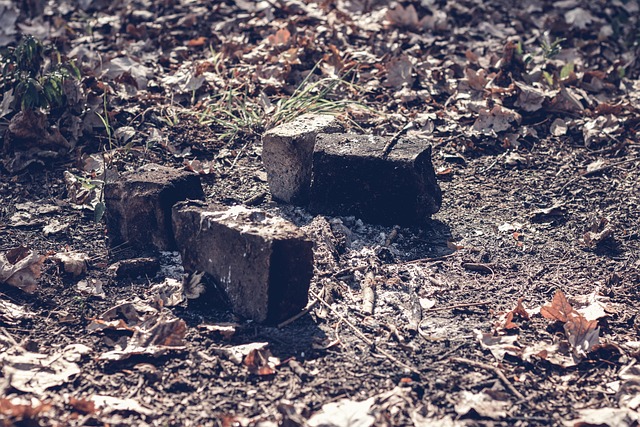California's real estate investors play a vital role post-disaster events like fires by purchasing undervalued properties at discounted prices. They can rehabilitate and resell homes, provide rental opportunities, or engage in large-scale development, aiding community rebuilding while potentially turning a profit. Navigating legal complexities, understanding market dynamics, and being agile in identifying undervalued properties are key to successful post-fire property sales in California.
Real estate investors play a pivotal role in shaping California’s housing market, especially post-disaster. This article delves into their crucial function during and after fires, focusing on the specific opportunities and challenges in California. We explore strategies for navigating post-disaster property sales, legal considerations when selling a house after a fire, and tips to maximize returns for successful real estate investing. Understanding these dynamics is essential for both investors and homeowners in fire-prone areas.
- Understanding Real Estate Investors: Their Role in the Market
- The California Housing Market: Opportunities for Investors After a Fire
- Navigating Post-Disaster Property Sales: Challenges and Strategies
- Legal Considerations for Selling a House After a Fire in California
- Maximizing Returns: Tips for Successful Real Estate Investing
Understanding Real Estate Investors: Their Role in the Market

Real estate investors play a pivotal role in shaping the housing market, especially in areas like California, where a significant portion of the population considers homeownership a cornerstone of their lives. These investors are not just wealthy individuals; they could be anyone from private equity firms to individual landlords looking to expand their portfolio. Their primary goal is to identify undervalued properties, whether it’s a house damaged by a fire and in need of renovation or a prime piece of land waiting to be developed.
By purchasing these assets at often discounted prices, real estate investors contribute to the efficient allocation of resources within the market. They then have several options: they might restore and resell the property, hold it for rent, or engage in larger-scale development projects. This dynamic is particularly significant post-disaster events like fires, as communities in California frequently face the challenge of rebuilding and revitalizing affected areas. Investors step into this void, helping to accelerate recovery efforts while potentially turning a profit.
The California Housing Market: Opportunities for Investors After a Fire

After a devastating fire, the California housing market presents unique opportunities for real estate investors. Many homeowners face the challenge of rebuilding or relocating, creating a supply gap that can drive up property values in affected areas. Investors who act swiftly can capitalize on this moment by purchasing damaged properties at potentially lower prices and rehabilitating them before reselling at a higher market value.
The process of selling a house after a fire requires careful navigation due to legal and insurance complexities. However, with the right expertise and strategic planning, investors can turn these challenges into advantages. By focusing on areas experiencing recovery and rehabilitation, investors can contribute to community rebuilding while securing substantial returns on their investments in the ever-dynamic California housing market.
Navigating Post-Disaster Property Sales: Challenges and Strategies

Navigating post-disaster property sales, such as those involving a sell house after fire California scenario, presents unique challenges for real estate investors. The initial impact of a disaster often leads to distressed selling, where homeowners may be eager to offload their properties quickly due to financial strain or insurance settlement pressures. This creates opportunities for savvy investors, but it also demands careful consideration.
Investors facing these situations must employ strategic approaches. Conducting thorough property inspections is paramount to understanding the extent of damage and potential costs for repairs. Additionally, building relationships with local real estate agents familiar with post-disaster markets becomes invaluable for gaining insider knowledge on prices and demand. Flexibility in negotiation and a willingness to adapt to evolving market conditions are key to successfully navigating these complex transactions.
Legal Considerations for Selling a House After a Fire in California

When selling a house after a fire in California, legal considerations are paramount. The first step is to assess whether the property can be repaired or if demolition is necessary. If repair is feasible, ensure all construction work complies with the state’s building and safety codes. Obtain any required permits and engage a professional contractor for the repairs.
In California, insurance plays a significant role in the aftermath of a fire. Review your policy to understand coverage limits and deductibles. Document the damage thoroughly, including before-and-after photographs and estimates from contractors. This process is crucial when filing an insurance claim or negotiating with potential buyers who may want to inspect the property.
Maximizing Returns: Tips for Successful Real Estate Investing

Maximizing returns is every real estate investor’s goal, and for those in California, there are strategic tips to enhance profits, especially when dealing with post-fire property sales. One key strategy involves understanding the local market dynamics. After a fire, areas often experience a temporary shift in values as reconstruction begins. Investors can capitalize on this by being agile; quickly identifying undervalued properties and purchasing them at a discount. This allows for potential high returns once the area rebounds.
Another effective approach is to focus on rehabilitation projects. Buying a house that needs repairs after a fire can be a lucrative opportunity. Investing in renovation ensures you can sell at a higher price, especially if you target growing markets like California’s. Efficient project management and staying within budget are crucial to making a profit while offering a desirable, refurbished property for the next homeowner.
Real estate investors play a pivotal role in California’s housing market, especially post-disaster scenarios. After fires like those in California, navigating property sales requires strategic acumen and legal knowledge. By understanding investor needs and implementing effective strategies, such as maximizing returns through efficient marketing and legal compliance when selling a house after fire in California, all parties can navigate these challenges successfully. This article has provided insights into each step of this process, from recognizing market opportunities to ensuring legal considerations, ultimately guiding investors towards successful real estate ventures.






